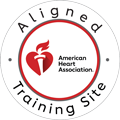[vc_row][vc_column width=”2/3″][vc_column_text]Allergies are associated with the immune system. Allergies take place when the immune system produces antibodies as a reaction to any strange substances. Those antibodies work as a protection against anything that would lead to any sickness or infection. As a reaction, the immune system identifies an allergen as harmful and can inflame different body parts such as the digestive tracts, the skin, or the sinuses. The allergies level of severity can differ from person to another. Also, the range of dangerousness varies from minor to extreme such as the anaphylaxis. The symptoms of allergies are based on the substance involved. There are five different cases, which are the hay fever, food allergies, drug allergies, atopic dermatitis, and insects’ sting allergies. Each case includes different symptoms. The symptoms of hay allergies may include sneezing, runny-itchy nose, and swollen eyes.
For the food allergies, symptoms may cause a person to have tingling mouth and a swelling in lips, tongue, throat, or even the face. In an insect sting allergy, a person is more likely to have an edema (a large area of swelling around the sting area), chest tightness, shortness of breath, coughing, and itching. Drug allergies may include rash, facial swelling, itchy skin, and wheezing. Atopic dermatitis can cause itchiness, redden, and flakiness of the skin. Anaphylaxis is a term that describes a severe allergy reaction. It can be a symptom for food allergies, insects’ stings, and drug allergies.
Some of the signs that are associated with anaphylaxis include rashness in skin, lightheadedness, vomiting, low blood pressure, and loss of consciousness. In this severe case, calling 911 and receiving immediate medical help is important. An allergy reaction is caused when the immune system mistakenly produces an antibody for a harmless allergen. Therefore, when a person is exposed to that same allergen again, the immune system would releases substances that cause the allergy symptoms. Some common allergens include pollen, dust mites, animal dander, insect stings, medications, substances that we come in touch with, and certain foods. Also, heredity can play a role in increasing the chances of having allergies. Children are expected to have higher rates of allergies than adults.
Children can get rid of those allergies, as they get older. However, it is important to note the rarity of having an allergy that outgrows and then appears back at a later time in a person’s lifetime. As complications, allergies can lead to other medical problems. Those medical problems include asthma, anaphylaxis, fungal complication of lungs, and atopic dermatitis. If a person was experiencing some of the above symptoms, then he or she should schedule an appointment with a doctor for diagnosis and available treatments. In this case, the doctor will ask several questions and do a physical test to try to assess the actual health problem and whether it’s allergies or something else. If the allergy was related to foods, then expect the doctor to ask you to keep a dietary diary of all the foods being eaten.
Furthermore, a person with allergies will be asked to complete either a skin test or a blood test. In a blood test, a blood sample is taken to measure the immune system’s reactions to particular allergens. The skin test is also important, as it demonstrates if a person is allergic to specific things by applying them to the skin. In this case, if the skin develops irritation, then there is an allergy reaction. Although there is no cure for many allergies, there are many treatments that can aid in reducing the effect of an allergy. Those treatments include an immunotherapy, symptoms-reducing symptoms, emergency epinephrine, and allergen avoidance. Therefore, it is important to seek a medical help, as those symptoms can be minimized.
Reference:
Call Us Now
Get the Best CPR Class in Tampa Today!
http://www.mayoclinic.org/diseases-conditions/allergies/basics/definition/con-20034030
[/vc_column_text][/vc_column][vc_column width=”1/3″][vc_single_image image=”9789″ img_size=”medium” alignment=”center”][vc_single_image image=”6623″ img_size=”medium” alignment=”center”][vc_single_image image=”6538″ img_size=”medium” alignment=”center”][vc_single_image image=”6621″ img_size=”large” alignment=”center”][vc_single_image image=”6650″ img_size=”large” alignment=”center”][vc_single_image image=”6626″ img_size=”medium” alignment=”center”][vc_single_image image=”6523″ img_size=”medium” alignment=”center” onclick=”custom_link” link=”https://cprtampa.training/cpr-tampa-class-reviews-tampa-florida/”][vc_single_image image=”6655″ img_size=”medium” alignment=”center”][/vc_column][/vc_row]


